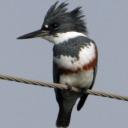Yahoo Answers is shutting down on May 4th, 2021 (Eastern Time) and beginning April 20th, 2021 (Eastern Time) the Yahoo Answers website will be in read-only mode. There will be no changes to other Yahoo properties or services, or your Yahoo account. You can find more information about the Yahoo Answers shutdown and how to download your data on this help page.
Trending News
Why are Bugs attracted to Light? (BA 10 pts)?
In the night I've seen flies and other bugs flying around a lamp post in front of my house. So I wondered why are bugs attracted to light?
Best Answer WILL get 10 points. I don't want the best answer to be left to voters.
2 Answers
- Anonymous1 decade agoFavorite Answer
Nocturnal insects guide themselves to some extent by the moon and possibly the stars which are essentially stationary as far as insects are concerned. The orientation consists of keeping the same angle between the direction of flight and the light source. However, a nearby light source like an artificial light source appears to change position as the insect flies. The insect thinks that it is veering off course, so it compensates by changing its direction of flight to compensate. But the light source still appears to move, so the insect compensates again, and all the compensations together turn the direction of flight into a spiral that "captures" the insect and brings it right to the light source.
- Cal KingLv 71 decade ago
Imagine finding yourself inside a dark cave or tunnel and needing to find a way out. Instinctively, you will look for a source of light, because that is probably where the exit to the outside world is. Light is therefore the key to freedom.
Imagine many insects that have flown accidentally into some dark cavity, such as a tree hole. Imagine how natural selection will favor those insects that can find their way out of the cavity instead of being trapped and starving to death inside without reproducing. One way an insect can find a way out is to follow the light, just like the human inside a cave. Over hundreds of millions of years of evolution, natural selection have eliminated those insects that do not follow the light instinctively because those insects will most likely perish. Now, artificial lights do present a problem for insects, because they are basically a 20th century invention. Therefore natural selection does not yet have the time needed to favor insects that can distinguish between artificial light and natural light (sunlight and moonlight). Therefore they instinctively follow the light, even though it may lead to their deaths. Perhaps, if modern civilized humans were to stick around for millions of years, insects may have enough time to adapt and be able to distinguish between artificial light and natural light because natural selection will eliminate those insects that fly to their deaths towards fires and artificial lighting. Until then, insects will still be following the light instinctively when it is dark.


